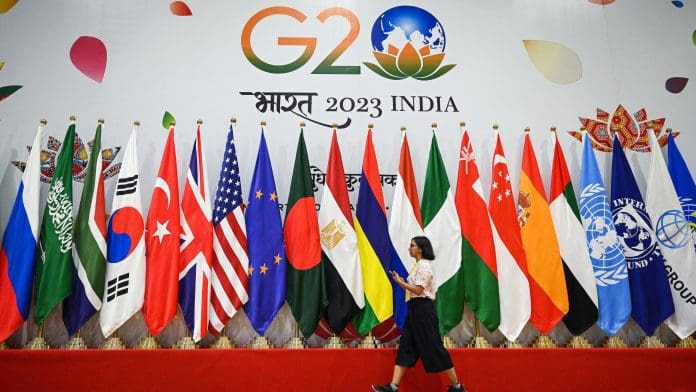The leaders of the Group of 20 gathering for the yearly summit were able to agree on a collective statement outlining their common positions on economic growth and climate change, but their failure to expressly denounce Russia’s invasion of Ukraine revealed divisions within the team.
In the run-up to the meeting, diplomats have been frantically drafting a final unified statement but have run into problems with the vocabulary to elaborate on the war in Ukraine. The summit’s host, Indian PM Narendra Modi, scored a victory with the compromise statement that was ultimately released, but it still represented a posture that was far more accommodating than what the US and its friends in the West had individually taken.
During his two-night visit to India for the summit, US President Biden hoped to persuade the world’s most powerful economies to support Ukraine. Additionally, he argued in favor of American involvement in underdeveloped nations.
G20 Gives Out Explicit Statements On Russia’s Invasion Of Ukraine
While the meeting was still going on Saturday, the leaders concurred on a unified statement that acknowledged Ukraine’s situation without erasing the significant divisions within the group. Without specifically naming Russia for its invasion, the proclamation stated that “All States shall refrain from using force or threatening to use force to acquire territory.” The paper also emphasized the financial costs of the conflict and expressed disagreement with using nuclear weapons. The statement admitted “various perspectives and evaluations of the circumstance were made,” reflecting the severe divisions among the G20 countries.
The declaration won the US acclaim. The declaration was hailed by Jake Sullivan, US security advisor, as a “significant accomplishment for India’s presidency and a statement of trust in the G20’s ability to cooperate on a variety of urgent issues.” “The G20 declaration contains several pertinent statements on the conflict in Ukraine.”






